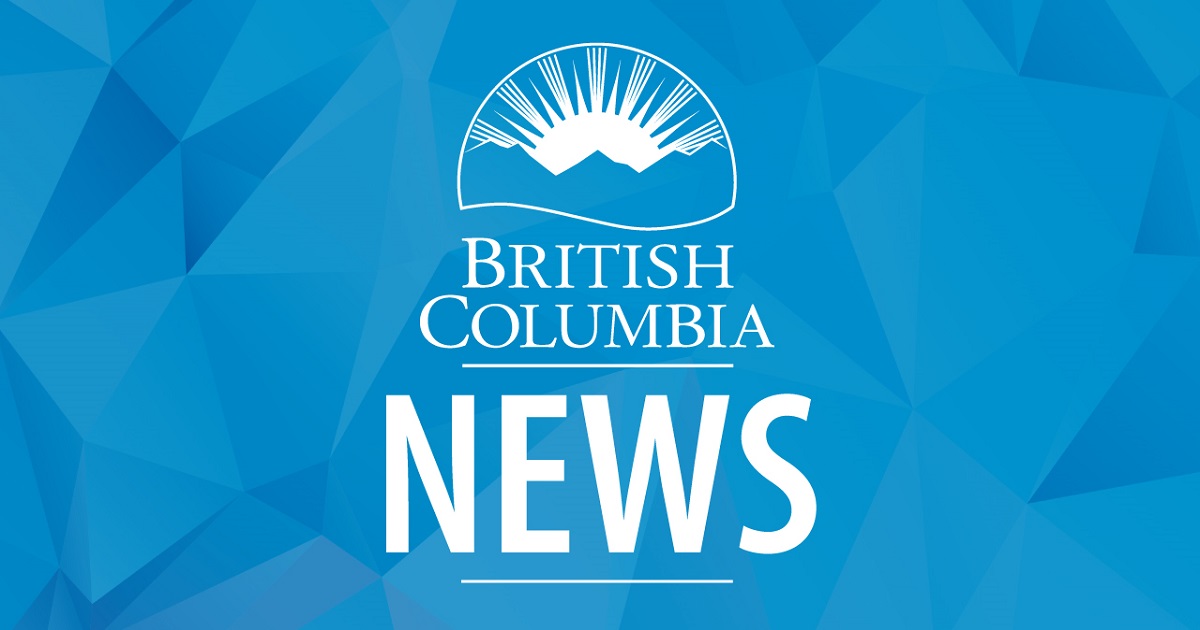
British Columbia’s economic growth is expected to outpace Canada’s in 2021 and 2022, according to projections from the Economic Forecast Council (EFC).
However, yet-to-be-determined economic impacts from recent flooding and extreme weather may affect future forecasts.
Each year, B.C.’s finance minister meets with the 13-member council of private-sector forecasters as part of preparation for the next year’s budget. This year an additional set of discussions was added, providing an opportunity to consult with a new Environmental, Social, Governance (ESG) Advisory Council to further explore how the provincial government can continue to build resilience and support well-being in British Columbia.
Private-sector forecasters anticipate that, despite the pandemic, the province’s economy will grow by 5.3% in 2021 and 4.2% in 2022, which is above the respective national GDP estimates of 4.9% and 4.1%. Although B.C.’s economy contracted in 2020 due to impacts from the COVID-19 pandemic, B.C. was among provincial leaders last year and the economy’s 3.4% decline was smaller than originally projected.
“Momentum from our strong recovery and increasing vaccination rates over the last few months has helped put B.C. on a good path for future economic growth,” said Selina Robinson, Minister of Finance. “There are more challenges ahead, but forecasts signal the work we have done so far has put us on the right track and provided us with a solid foundation to continue responding to the pandemic and recent flooding and support a strong recovery for British Columbians.”
Discussions with the EFC and the ESG Advisory Council focused on current events, issues affecting B.C.’s economy and the environmental, social and governance opportunities and challenges facing the province. Key topics at the meetings:
- climate change risks and impacts on people,
- housing affordability,
- reconciliation with Indigenous Peoples,
- trade tensions and supply chain disruptions,
- standard of living, poverty and inequality,
- diversity and inclusion,
- economic resilience and sustainability,
- natural resource development, and
- policies and measures that build shared prosperity.
“As we look to our recovery, we are aligning our investments with our priorities to ensure that while we grow our economic resilience, we are also making progress on addressing climate change, reducing poverty and inequality, and advancing reconciliation with Indigenous Peoples,” Robinson said. “Following the incredible hardship our province has faced with this year’s floods and fires during a pandemic, it’s never been more important for us to share ideas about building resilience and sustainability.”
Several forecasters noted that the provincial government's commitments to addressing climate change, its 10-year housing plan, record levels of capital investment and continued work to diversify the economy, have helped to insulate the province from some economic impacts and position the province well for longer-term sustainable growth.
Forecasts and feedback from the two councils will be used to inform the next provincial budget, which will be released on Feb. 22, 2022. EFC members will also have an opportunity to submit revised forecasts in early January.
Quick Facts:
- In the Province’s Second Quarterly Report, which does not yet incorporate impacts from the recent extreme weather and flooding, B.C. projected a revised deficit of $1.7 billion for the 2021-22 fiscal year, which is a significant improvement from the deficits previously estimated in Budget 2021 and the First Quarterly Report.
- Environmental, social and governance are three main categories often discussed when evaluating sustainability performance, risk mitigation planning and societal well-being.
Economy expected to show continued strength, flood recovery poses challenges | BC Gov News - BC Gov News
Read More
No comments:
Post a Comment